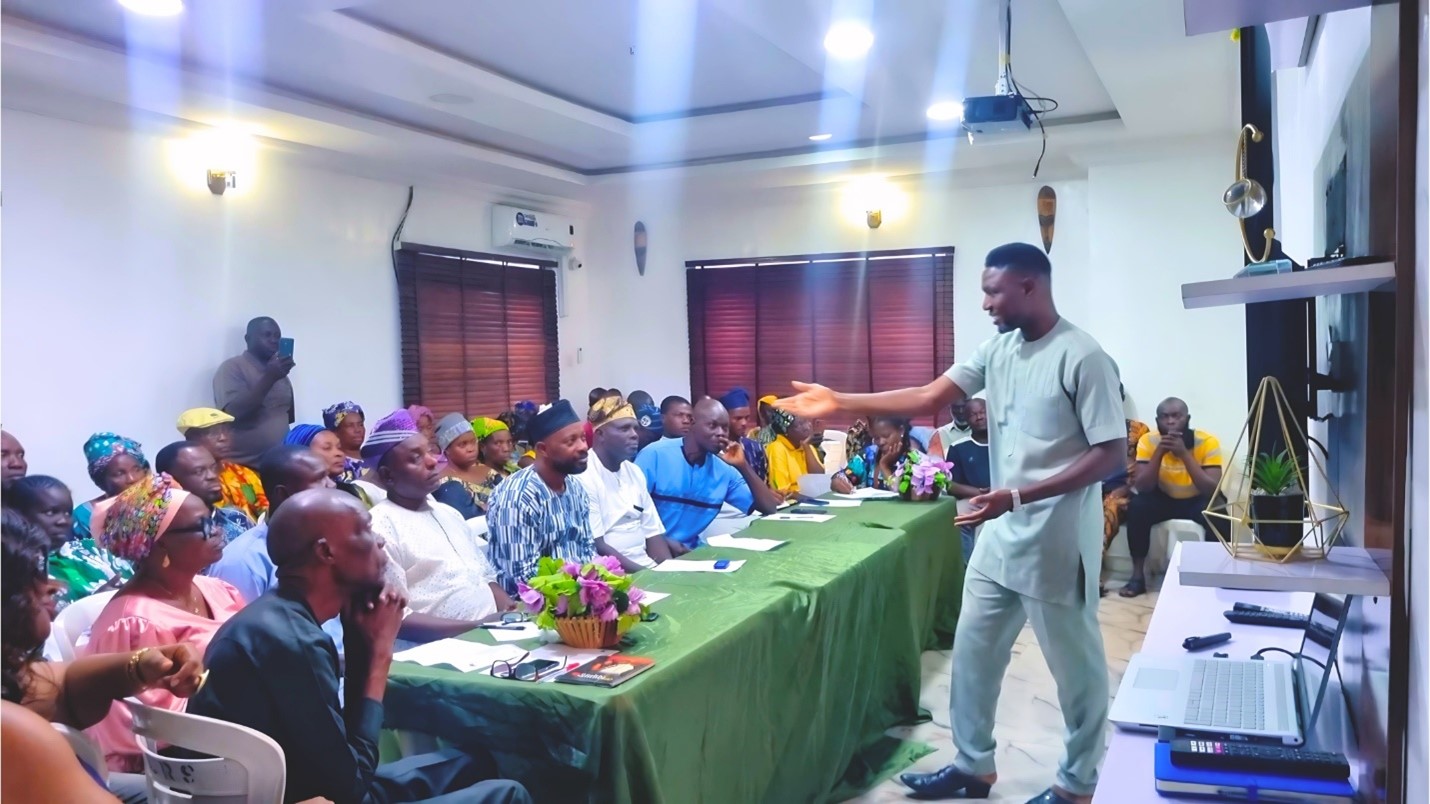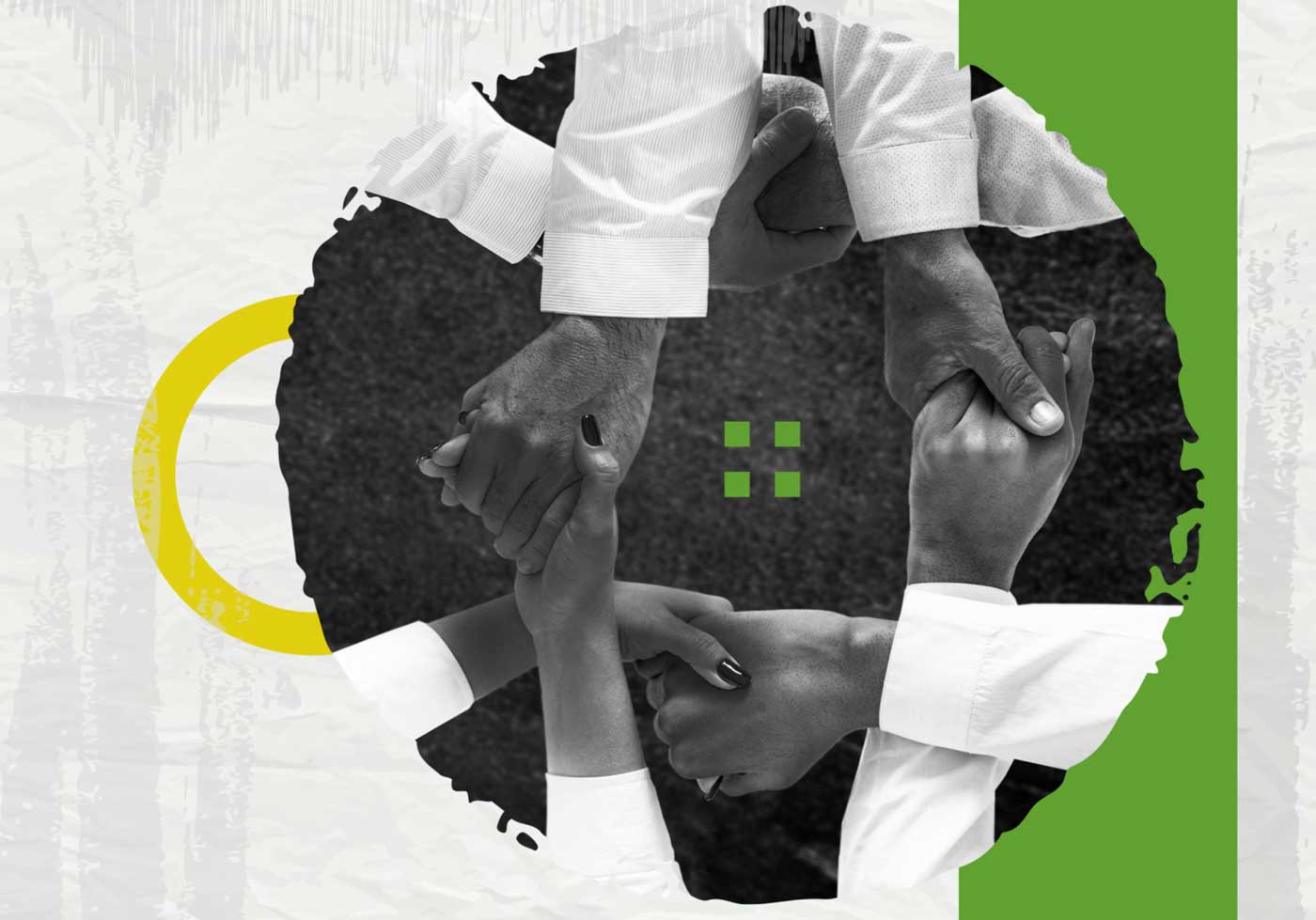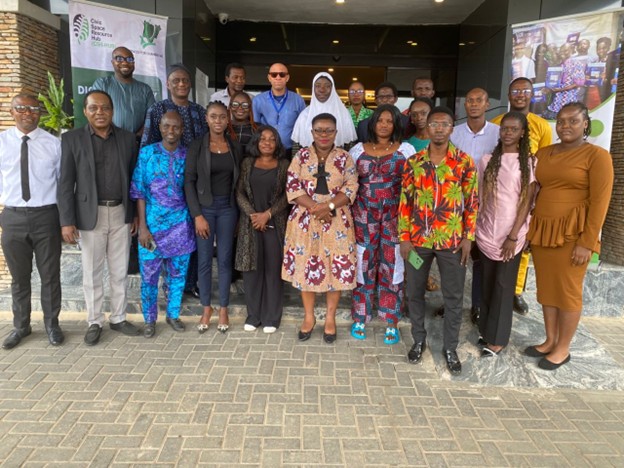
At the general meeting of the Communities Alliance Against Displacement (CAD) held on August 13, 2024, over 50 representatives of informal communities that either live under the threat of eviction or have been affected by forced displacement converged in Lagos to evaluate and revive their collective grassroot campaigns against mass evictions, inadequate housing and lack of access to basic services in Lagos State. Driven by a shared sense of purpose, CAD general meetings offers a safe space for marginalized and displaced communities to build a unified front against past and current evictions, strategize collectively to improve knowledge of their legal rights, advocate for fairer housing policies, and celebrate victories.
Spaces for Change | S4C collaborates with CAD to host the general meetings every quarter. Many present in the room had faced significant hardships — from losing homes to the bulldozers in the first quarter of 2024, to mourning the loss of community leaders who passed on while still fighting for justice over illegal demolitions that happened over a decade ago. Despite these challenges, they showed up in their numbers, united by a shared struggle and a hope for change. The executive director’s words, filled with empathy and resolve, acknowledged these profound challenges and emphasized the power of collective action in addressing forced displacement and inadequate housing policies. This set the tone for a meeting that was as much about healing and solidarity as it was about strategizing for a better future.
At the meeting, community representatives from Ifeoluwa, Ifesowapo, Toluwani, Igbo-Elejo, Ishale-Akoka, Ago-Egun, Ebute-Ilaje, Badia-East and Badagry (all in Lagos) reflected on the impact of urban policies and programs on their respective communities as well as CAD’s interventions to secure housing justice for marginalized populations. Nothing has impacted informal communities in Lagos more than mass evictions and displacement that often accompany urban renewal and major development projects, with highest impacts observed in Eti-Osa, Kosofe, and Oshodi-Isolo local government areas. Not only that, low-income communities ostensibly bear the disproportionate impact of these urban development policies and programs. The adverse impacts derive from exclusion, lack of consultation, inadequate compensation and the increasing resort to excessive force during evictions. The reflections evaluated the progress CAD and S4C have made toward supporting displaced communities through legal advocacy, community outreach, public interest litigation and the provision of essential relief materials.
CAD has actively engaged with community members through meetings, workshops, and outreach programs, raising awareness about the rights of displaced persons and providing legal aid to those facing eviction. Legal battles were initiated to challenge forced evictions, and several court cases temporarily halted these actions. In collaboration with S4C, CAD also provided essential relief materials, such as mosquito nets and raw food, particularly to nursing mothers and children, to mitigate the harsh conditions of displacement. Alongside these efforts, there has been a strong emphasis on policy advocacy, with ongoing engagement with relevant authorities and stakeholders to promote policies that reflect the needs and rights of vulnerable communities. Many participants spoke about how they had benefited from the legal support and relief provided, expressing gratitude for the assistance received while also advocating for continued efforts to address the challenges they face.
One of CAD community leaders was recently arrested and currently facing criminal charges because of his social media posts condemning the demolition and burning of informal communities by Lagos State authorities. That incident prompted the special learning session, led by an expert from S4C, empowering target groups with knowledge of their digital rights within the broader context of housing rights. Participants learned about how they could protect themselves online, what legal recourse they have if their rights are violated, and how to safely advocate for their communities without fear of reprisal. The open forum that followed allowed participants to share their personal experiences of displacement, highlighting the psychological trauma and the urgent need for alternative housing solutions. CAD and S4C reaffirmed their commitment to ongoing legal advocacy and policy reform, ensuring continued support for affected communities.
The meeting concluded with a strengthened resolve among all attendees to continue their advocacy efforts, with plans for more frequent community engagements and legal aid clinics aimed at addressing the ongoing displacement crisis in Nigeria. The palpable sense of solidarity and determination underscored the meeting’s success in uniting community members and advocates in the fight for justice and equitable housing policies.



